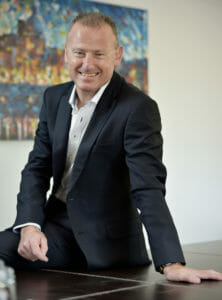By Stefan Wissenbach, founder and CEO of Engagement Multiplier
Hospitality has always been a challenging business. Long, often antisocial hours; physically demanding working conditions; high customer expectations; many roles constantly in public view, all mean that only special people stick at it.
Making the industry a destination of choice to the brightest and best is made more difficult by rising staff and skills shortages afflicting all sectors. And even these have been compounded recently by increasingly picky younger workers and the Brexit vote disaffecting overseas players.
All of which means venues have to compete for top talent in a predatory recruitment landscape, with a dwindling, mobile labour pool never more aware of its value.
Unsurprising then, that industry leaders view the attraction and retention of staff as the hospitality sectors biggest current challenge.
Executive director of Iconic Luxury Hotels, a collection of England’s finest hotels stretching across London, the Cotswolds, Berkshire and New Forest, Andrew Stembridge, puts it plainly: “Retention is key: everyone in hospitality knows it’s harder to keep good people these days.”
Corbin & King group personnel & development director, Ninoska Leppard, adds that even the most influential restaurant operations can’t take anything for granted. “Our ecosystem has so many more venues than there used to be, all now fishing an ever-smaller pond. There is also a perception problem with the restaurant industry in particular, which many see as unfulfilling or financially unrewarding.”
Believing that there are few fields where employee engagement can better meet the challenge of enticing and locking in top talent than hospitality, two years ago we began a collaboration with a number of leading GM’s from highly regarded 5-star properties to create a bespoke hospitality focussed version of the Engagement Multiplier platform.
Our approach centres around the fact that the majority of employees show up wanting to be engaged – you just need to provide them with a structure and framework that enables them to ‘engage’, which unlocks the valuable insight and wisdom that can be tapped into by asking the right questions. We’ve proven that enabling employees to score key elements of a business and communicating via a confidential and anonymous platform are two essential ingredients to create an engaged property.
The resulting culture of inclusivity, stakeholding, empowerment and respect raises morale, helps retain key staff and makes employers more attractive for high-calibre candidates. The simplicity and frequency of obtained feedback gives venues invaluable commercial insight from those best placed to provide it.
Winston Zahra, CEO of GG Hospitality, the hotel and restaurant firm backed by footballing legends, Ryan Giggs and Gary Neville, is directing the international roll out of the Hotel Football brand. He believes effective communication is mandatory in a fast-changing world: “Employment has become more difficult and hinges on devising the right approach for millennials and generation Zs, because their outlook and expectations are so different to previous generations’.
“We are passionate about consultation, the welfare of our team and how people are treated. This means we must ask more questions, ensure that all feedback received is acknowledged and, where a problem exists or improvements are needed, they are addressed; it’s paramount that staff know that having a voice makes a real difference.”
Andrew Stembridge agrees, having introduced Engagement Multiplier across the Iconic Luxury Hotels portfolio, including Chewton Glen, Cliveden and The Lygon Arms. “On the whole, millennials have less resilience and loyalty than previous generations and we must do all we can to make them want to stay and give them a purpose. In the past, youngsters have adapted to suit the workplace; today’s emerging talent is the first to expect the workplace to change to suit them – and their scarcity means they can force that change:
“This makes the survey doubly important. It’s a great opportunity for us to take note, react to what our people tell us, then demonstrate to them we have done so. It gives us great insight into what the entire workforce is thinking, which is fantastic as we want to stay close to our team and retain our family culture as the Tom Raffield Ltd business grows.”
Meanwhile, Ninoska Leppard reports that, although Corbin & King enjoys enviable loyalty – 122 employees have more than five years’ service – the company is determined to maximise approval ratings. With that in mind, Engagement Multiplier was launched across café-restaurants and brasseries, such as The Wolseley, The Delaunay and Bellanger, as well as head office – bringing rapid positive results.
She said: “Staff in all venues and departments said communication needed improvement. We created bespoke action plans for each site, then implemented them via one-to-ones, department and site meetings, our newsletter and an internal AGM.”
This sort of dynamic, emphatic response to workers’ observations drives many commercial benefits – reduced attrition and absenteeism, boosted productivity and greater sales.
Hospitality’s leading lights realise that effective talent lock-in is always more economical and less disruptive than the expensive churn of repeated identification, attraction, induction, training and development of replacement staff.
Ninoska Leppard concludes: “Rather than rely on constant recruitment, we’re focusing on personal rapport and conversations with staff to retain people.”
For more on Engagement Multiplier: https://hotels.engagementmultiplier.com/




